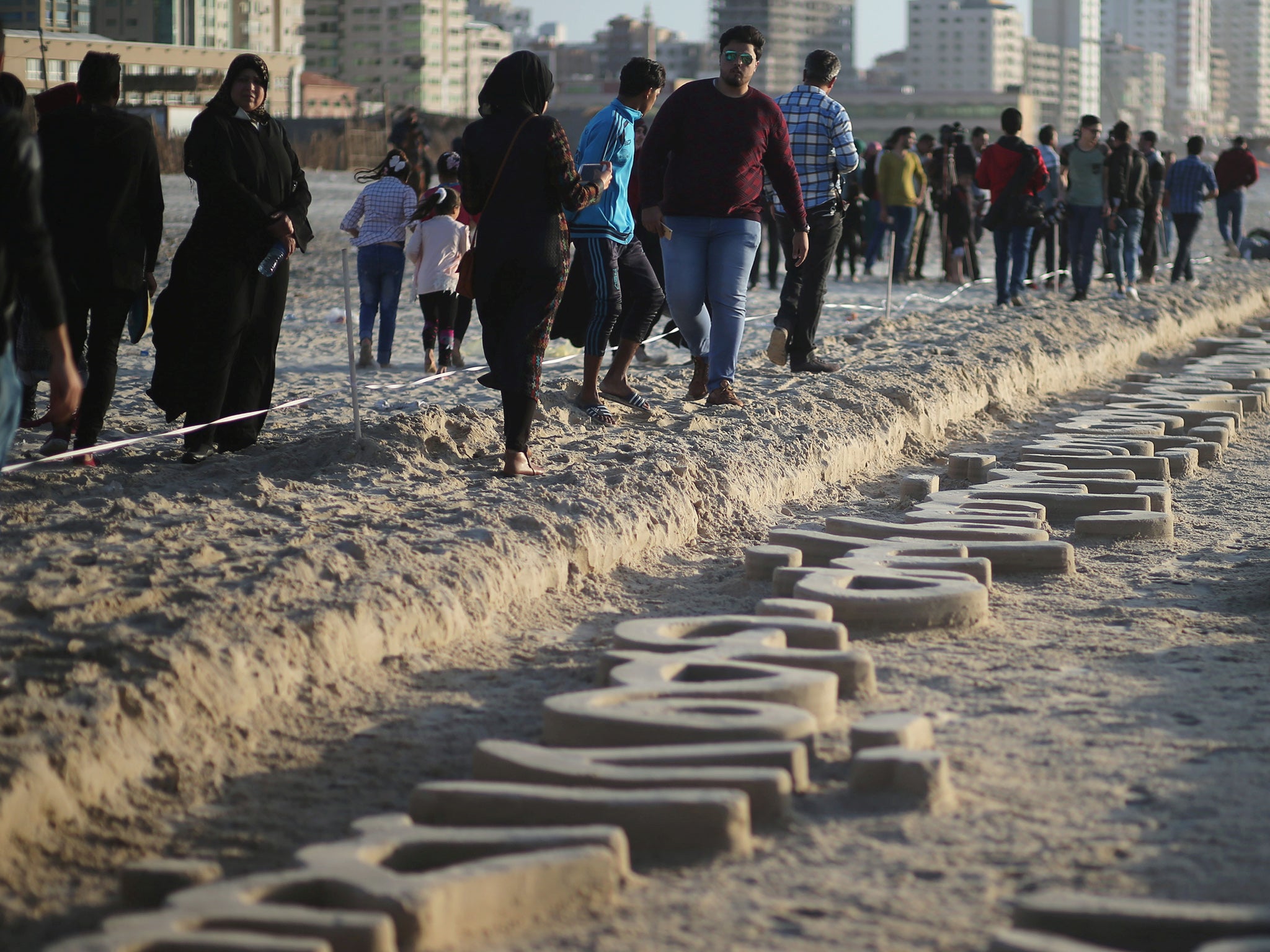Israel's response to UN agency's 'apartheid' finding is a distraction from the real issues
Israel likened the report to a Nazi propaganda publication, rather than focusing on the reasons why its actions are being criticised


Your support helps us to tell the story
From reproductive rights to climate change to Big Tech, The Independent is on the ground when the story is developing. Whether it's investigating the financials of Elon Musk's pro-Trump PAC or producing our latest documentary, 'The A Word', which shines a light on the American women fighting for reproductive rights, we know how important it is to parse out the facts from the messaging.
At such a critical moment in US history, we need reporters on the ground. Your donation allows us to keep sending journalists to speak to both sides of the story.
The Independent is trusted by Americans across the entire political spectrum. And unlike many other quality news outlets, we choose not to lock Americans out of our reporting and analysis with paywalls. We believe quality journalism should be available to everyone, paid for by those who can afford it.
Your support makes all the difference.In response to being called an "apartheid regime" by a UN regional commission, Israel compared the report to Nazi propaganda tabloid Der Sturmer, and foreign ministry spokesman Emmanuel Nahshon tweeted: “Don’t read it without anti nausea pills”.
It’s a particularly low trick to use past victimhood to dismiss contemporary criticism, and it's such a trite response that it has a name: Godwin’s Law. The principle, formulated by American attorney Mike Godwin nearly 30 years ago, is that most long-running political arguments sooner or later end with a comparison to Hitler or the Nazis.
Israel may consider itself more entitled than most to press Hitler into posthumous service. Even so, invoking the memory of genocide in order to dismiss an allegation by a UN commission is at best a lazy argument and at worst a manipulation to distract from the legitimacy of the claims.
This is the first time a body affiliated with the UN has used the term "apartheid" for the Israeli state’s treatment of Palestinians, and it is a grave assertion. The commission said that Israel has “established an apartheid regime that oppresses and dominates the Palestinian people as a whole”, and added that a “history of war, annexation and expulsions, as well as a series of practices” had left the Palestinian people “fragmented”.
If Israel disagrees with these characterisations, its case must be argued on the facts. Israel can insist – as it always does – that it is the only democracy in the Middle East and that equal rights are the law of the land. It can argue that it does not enshrine institutional separation as an ideal, which is the classic definition of apartheid.
But to its detractors the value of Israel’s much-vaunted democracy can be precisely reckoned up at 80, the percentage of the population which is Jewish. Those who champion the Palestinians’ right to justice, fair play and self-determination will point to half-a-century of collective suffering of an entire people. The Palestinians will repeat their view of Israel’s 708-km separation barrier in the West Bank: a racial segregation or "apartheid wall". For good measure, they might throw in an uncomfortable but undeniable truth: that it would be impossible for an Arab Israeli ever to become prime minister of the Jewish state.
Then there is the case of a rather heavy-handed law recently passed by the Israeli parliament which bars entry to foreigners who have publicly supported the boycott, divestment and sanctions movement. The law seems to indicate the extent to which an increasingly defensive Israel is prepared to shut out criticism from the wider world.
This comes at a time when Israel seems to have Donald Trump’s unambiguous support, his settlements-supporting choice of envoy to Tel Aviv and the conspicuous and humiliating seven week delay between the US President’s inauguration and his telephone chat with Palestinian President Mahmoud Abbas.
Israel's incendiary words likening the report to a Nazi publication ignores the reasons behind the "apartheid" claim, and gives critics even more ammunition, while allowing Israel supporters an easy response. For everyone else, it simply distracts from the very real problems with the way Israel treats non-Jews, and how these should be addressed.
Join our commenting forum
Join thought-provoking conversations, follow other Independent readers and see their replies
Comments